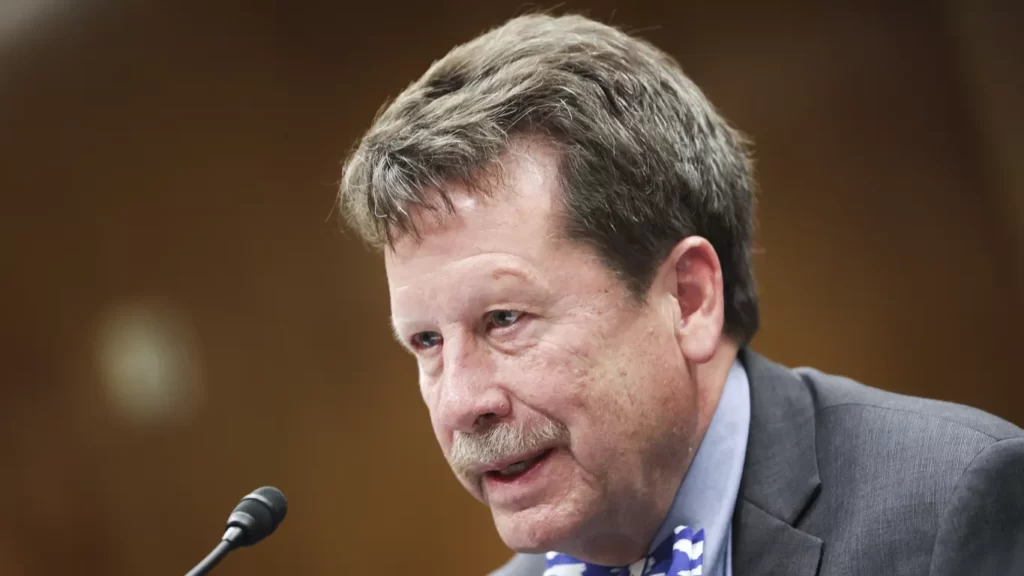U.S., Food and Drug Administration commissioner Robert Califf told CNN on Saturday evening “almost no one” in the U.S. should be dying from COVID-19, but misinformation was impacting the death toll.
By the numbers: Nearly 998,000 people have died of COVID in the U.S. since the pandemic began as of Sunday night, according to data from Johns Hopkins University.
- The coronavirus was the third leading cause of death in the U.S. in 2021 for the second consecutive year, behind heart disease and cancer.
What he’s saying: Califf acknowledged to CNN’s Pamela Brow that there’s “no way to quantify” his belief that misinformation is the leading cause of death in the U.S., but pointed to “an erosion” of life expectancy” that’s on average five years shorter than other high-income countries.
- “These are all based on estimates but this is quite disturbing,” Califf said.
- “With COVID, the situation is we know that if you’re vaccinated and up to date with your vaccinations, you have a 90% reduction in the risk of death,” he said. “If you are unlucky enough to get infected … another 90% reduction would be anti-virals, which are now available,” he added.
The bottom line: “Almost no one in this country should be dying from COVID, if we were up to date on our vaccinations and got appropriate anti-viral treatment,” Califf said.
Worth noting: Califf, a cardiologist by training, told Brow that what’s concerned him for a long time since before the pandemic was the “reduction of life expectancy from common diseases like heart disease,” for which a lot of information was available on preventing bad outcomes.
- “But somehow … the reliable, truthful messages are not getting across,” he said. “And it’s being washed down by a lot of misinformation, which is leading people to make bad choices that are unfortunate for their health.”
The big picture: Califf told a health conference in Austin, Texas, last month he believed misinformation “is now our leading cause of death” in the U.S., per an Association of Health Care Journalists blog.
- He pointed to examples including vaccine hesitancy and the popularity of the anti-parasitic ivermectin, which the FDA has urged people not to take as a treatment for the virus, to support his point, according to the AHCJ.
- A third of Americans who believe coronavirus vaccine misinformation are aware they’re in disagreement with scientists and medical experts, according to a survey by The COVID States Project earlier this year.

Source: axios.com

